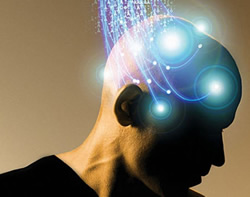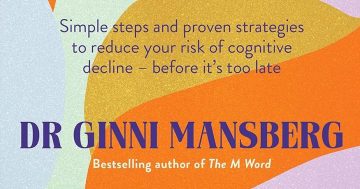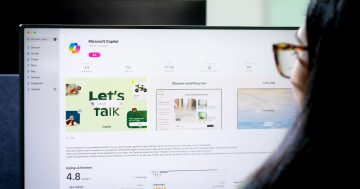Laura Stack* wonders whether our brains are gradually evolving to cope with the massive input of data that comes with the information age.
 Wouldn’t it be great if you could multitask as well as a computer?
Wouldn’t it be great if you could multitask as well as a computer?
If you could partition your brain to handle multiple tasks at once, you’d surely achieve peak productivity and get much more work done at the office.
This idea became pervasive back in the 1980s and 1990s, as computers became ubiquitous and indispensable.
While computers made us more productive, today’s experts will tell you there’s a great deal wrong with the idea of multitasking.
First, even most computers don’t really multitask; they just switch from one task to another very, very fast.
We all know what happens when you ask a computer to do too much at once.
Everything slows to a crawl, until the system either crashes or you must reboot.
Most people who perform what they consider multitasking are really task-switching, just like a computer, except there’s no way we can do it nearly as fast as our silicon servants.
When you switch to a new task, it takes a few minutes to fully focus on the task.
If you’re trying to juggle more than two or three tasks at once, you’ll slow down on all of them.
Therefore, most experts now urge people to ‘singletask’ or ‘monotask’ instead, focusing on just one thing until you’re done before moving to the next.
Still, as the electronic age continues there are clues suggesting the human mind may be reorganising to become better at multitasking.
Anecdotal evidence: This comes from parents of Millennials and post-Millennials, that suggests many can effectively assimilate new information while multitasking.
My son James, now in college, serves as a good example.
While he was in high school, he could watch Netflix, SnapChat, and study at the same time — and remain an excellent student.
While I realise anecdotal evidence isn’t scientific, it’s still suggestive.
Supertaskers: We’ve known for almost 10 years that 2.5 per cent of the population can multitask without undue stress.
It turns out their brains are wired differently, so they can multitask literally without overheating their grey matter.
It must be noted, however, that their efficiency drops as the number of simultaneous tasks increases.
From an evolutionary perspective, it’s hard to be sure this represents something new, since we have little baseline data from the 20th century to compare with this phenomenon.
Different kinds of tasks: We’ve also learned it’s easier to multitask while doing significantly different tasks, like talking to someone while buttoning your shirt, or listening to music while driving.
If tasks use different mental pathways, you can succeed at multitasking if you stick to three tasks or less.
We have serious trouble with tasks using the same cognitive pathways.
Try singing one song while listening to another or typing an email with one hand while you write something else with another.
Training helps: This is kind of a ‘fence-sitter’ fact, since it can apply to or against our thesis.
The fact we can train people to multitask better is partly attributable to using the method outlined above.
However, it may also suggest an innate human ability to ‘rewire’ our brains, as sometimes happens to people who sustain traumatic brain injuries.
Maybe we’re slowly adjusting, as a species, to handle information flow and experience as it continues to increase in volume.
Again, we lack baseline data to show how far we’ve come… or not.
Will there be a time, not so long from now, when experts will again recommend we multitask regularly?
The answer is a definite, unqualified ‘maybe’.
We need a lot more time and data to determine this — in terms of several generations who haven’t been deliberately modified to handle information better — since we lack a baseline from earlier in the electronic era.
The comparatively recent, exponential increase in the amount of information hitting us each day may (or may not) be forcing us into a reorganisation of the human brain as profound as the one that occurred 18,000 to 20,000 years ago.
That one led to art, agriculture, a greater willingness to work together, possibly even speech … and many other things that made us what we are today.
The big question is, what will we be like in a century or two?
*Laura Stack is an award-winning keynote speaker and bestselling author. She can be contacted at http://theproductivitypro.com/blog
This article first appeared on Laura’s blogsite.











